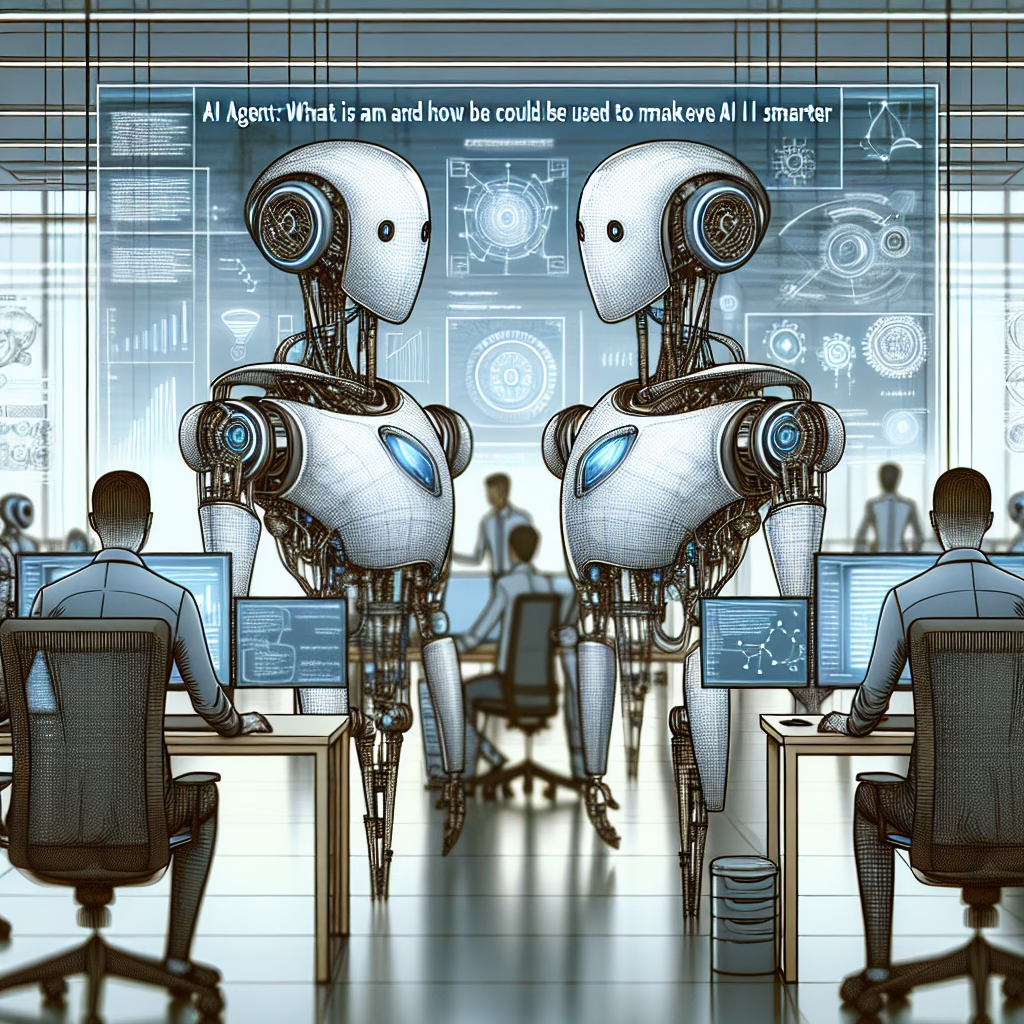AI Agents: The Next Evolution in Artificial Intelligence
Artificial intelligence is evolving at an unprecedented pace, and AI agents are now at the forefront of this revolution. Unlike traditional AI models that require direct human prompts, AI agents function autonomously, completing tasks and making decisions with minimal human input. As companies and researchers push the boundaries of what AI can do, these intelligent systems are poised to redefine industries, workflows, and daily life.
What Are AI Agents?
AI agents are advanced AI systems that operate independently to complete tasks, improve efficiency, and interact with their digital environments. They can be thought of as autonomous entities capable of decision-making, problem-solving, and learning from their experiences. This makes them significantly different from standard AI chatbots or models like ChatGPT, which require continuous user interaction.
Key Characteristics of AI Agents
- Autonomy: AI agents can make decisions and complete tasks without human intervention.
- Continuous Learning: They improve through reinforcement learning and data feedback.
- Multi-Step Reasoning: Unlike traditional AI, agents can plan and execute multi-stage tasks.
- Self-Correction: AI agents adjust their approaches based on real-world outcomes.
How Do AI Agents Work?
AI agents function by using advanced machine learning models, combined with real-time data processing and decision-making capabilities. These systems often integrate with APIs, databases, and application workflows, enabling them to complete tasks ranging from simple information retrieval to complex strategic planning.
Core Technologies Behind AI Agents
- Reinforcement Learning: AI agents improve their performance by analyzing past decisions and outcomes.
- Natural Language Processing (NLP): Allows for seamless human-like communication and interaction.
- Automation & APIs: Enables AI agents to interact with various platforms and digital tools.
- Generative AI: Produces creative outputs like text, images, or code based on prompts.
Real-World Applications of AI Agents
These autonomous AI systems are already making an impact across multiple industries. Their ability to manage large-scale data, make real-time decisions, and automate repetitive processes is proving invaluable in various fields.
Business and Customer Service
- Automated Assistants: AI agents provide customer support, handling inquiries without human input.
- Workflow Automation: Businesses use AI agents to streamline tasks, improving efficiency.
- Data Analysis: AI systems quickly process market trends and provide strategic insights.
Healthcare
- AI Diagnostics: Systems that analyze medical images and recommend treatment plans.
- Drug Discovery: AI agents assist in finding potential new medicines through data-driven research.
Finance
- Fraud Detection: AI agents monitor transactions to identify potential fraudulent activity.
- Automated Trading: These systems make investment decisions based on market trends.
Personal Assistants
- Task Management: AI agents can schedule meetings and set reminders without user direction.
- Personalized Recommendations: AI-driven suggestions based on user preferences.
The Future of AI Agents
The potential of AI agents goes beyond simple automation. As their capabilities expand, these systems could fundamentally change industries and establish a new level of machine intelligence. However, challenges remain—including ethical concerns, reliability, and regulatory questions.
Challenges and Ethical Concerns
- Bias and Fairness: AI agents must be built on unbiased data to prevent discrimination.
- Data Privacy: Increased automation raises concerns over data security and user privacy.
- Accountability: Establishing responsibility when an AI agent makes a critical mistake.
Regulations and Governance
Governments and organizations are beginning to establish guidelines for AI agent usage. Future legislation may focus on AI transparency, ethical responsibility, and human oversight to ensure AI agents are used safely.
Conclusion
AI agents represent the next stage in artificial intelligence, offering automation and intelligence beyond traditional AI models. As these systems become more advanced, their potential applications will continue expanding, redefining how businesses and individuals interact with technology. However, widespread adoption must be balanced with ethical considerations and regulatory oversight to ensure their responsible and fair use.
Are AI agents the future of work and automation? The coming years will reveal just how deeply these intelligent systems integrate into our everyday lives.
< lang="en">







Leave a Reply